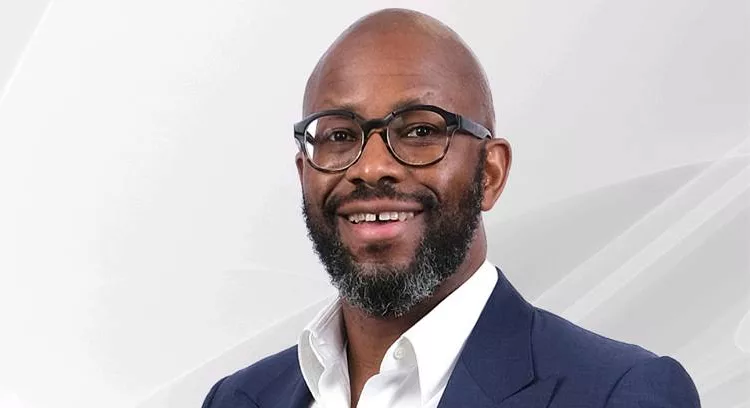What’s your vision for Africa and how do you intend to achieve that?
I have a fundamental belief that the future of Africa will be premised and including Nigeria, on having very strong digital infrastructure. It is in Nigeria’s self-interest to ensure it has modern, world class digital infrastructure (as we are talking about 5G today) because that can really accelerate economic growth and improve socio-economic outcomes for everybody. And you are seeing this play out in the US and they just auctioned a tremendous amount of spectrum.
They have allowed the consolidation in the sector so they can drive efficiencies. Why are they focusing on these things? Because the future is digital. AI, machine learning, all these things are what is going to distinguish between the winners and the losers of nation states. It’s all going to be about who controls the digital infrastructure. It is absolutely all about technology.
The countries that are thinking about the long term, sustainable health and growth are investing tremendously. And creating an environment with that investment comes very, very easily and actually creating incentives that are focused on ensuring that every single person ultimately has got a reasonable broadband connection. That is the centerpiece of what the economic growth and the prospects of Africa will be in 10 to 20 years.
We lay that infrastructure today. We create the services and we build the digital railroads. In the past we built physical railroads from Cape Town to Cairo. The new railroads are digital. And the countries that are building the infrastructure are the ones that are going to out compete the nations that haven’t thought this through. There’s often a sense that the networks are all about social media. No, it’s about the industrial capacity of nation states and we’ll see that in the next five years- the winners and the losers. The losers will be the ones that didn’t invest in the digital infrastructure for sure.
Your investments are huge. Nigeria is your largest market. Do you intend to keep the investment momentum?
We spend about $2 billion on capital expenditure every single year just to keep our network at world class level. We have half of our capital expenditure dollar indexed and it has gone up from 10 to 50 per cent. The input cost into running your network is actually increasing by that much for those components. The operators globally are asking for some modest price increase, to enable them to continue to invest because if they are not able to invest, then obviously the quality of the networks can come down.
I must assure you that the quality of the network that we run here is pretty much second to none. Some will sit back and we say as Africans, we have poor infrastructure. I tell you for broadband, ours is some of the best broadband infrastructure anywhere in the world, even better than AT& T and Verizon. What A&T and Verizon will earn from a customer, probably about $55 a month average revenue, across our markets in MTN, we will be doing maybe like $3 and we are buying the same equipment.
So, the economics are actually quite pressured in an industry where you have to constantly be deploying capital expenditure (capex). We do at the group level $2 billion, at least a third of that just for Nigeria. So you can say Nigeria is doing some of about $800 million of which $400 million is really dollar index.
Your subscribers pay international roaming rates when they visit other MTN operations. What are you doing to introduce single roaming in all your operations in Africa?
The issue of ‘roam like home’ is a big issue globally. We have a company called Global Connect, and we are working to make sure that it’s really seamless movement of people between countries who have MTN There is bigger issue across Africa which is to say, there is one thing to borrow from Europe and many things not to borrow from Europe, but the kind of roam like home, is something that we need to get right in the African continent.
What are you doing to ensure that your subscribers have the best quality of service and experience in this changing times?
As MTN, we are operating in 19 countries across largely Africa, but we are still in the Middle East. We have over 280 million subscribers who everyday use MTN SIM cards to connect with loved ones or for businesses to be able to interact. We take our role seriously around the belief that everybody deserves the benefits of a modern connected life.
And as we sit in current times, where the world is going through what is probably unprecedented times in terms of the conflict we are seeing in Ukraine, the effects of post-COVID, elevated inflation rates, the digital economy has all of a sudden become so fundamental and so central for societies to continue to have some semblance of normality.
People rely on their phones, people don’t leave home without their phones, banking systems are powered by the connectivity and the infrastructure that we provide, and more and more people have understood that digital infrastructure and services are what will get us through these challenging times and get us to the future that we so deserve as Africans.
And so, we really believe at MTN that providing our customers, providing the businesses that we partner with the best digital infrastructure is our role that we humbly serve to be able to end up in a place where we can be seen as partners for progress for the nation-states that we operate in.
Why did MTN decide to take the bold step to launch 5G services in major markets like Nigeria?
We took a bold step to say that when the opportunity comes to roll out fifth-generation (5G) technology in Africa, we are not going to take a backseat view as many pundits’ years ago said that there was no use case for 5G in Africa. We took a very contrary view to say 5G is for Africans, and when the frequencies become available we will participate in the auctions, which we did last year, and as soon as we are allowed to, we are going build world-class 5G networks.
We are very focused on ensuring that we don’t build an inferior product and you would have heard that MTN Group was adjudged the best network across African continent independently so, and that also is true here in Nigeria, where we always emphasise that the quality of any network we build must be as good as anywhere else. I travel a lot and I think that what always strikes me is when I get to the United Kingdom (UK), the network is really bad.
It’s congested, drop calls, major latency issues, and in US same experience, coming to Lagos much better. I go to Accra or Johannesburg, much better. In many ways we actually are leading the 5G that we have just started it now. In my view, we are going to see the transformation of this continent through 5G and with the youthful population, they do a lot of streaming and a lot of gaming that will go on behind 5G.
But the one thing people are not talking about, which I think will be the catalyst for Africa’s growth is the use of 5G for business-to-business (B2B) applications. We are seeing some of these in markets that we operate in, because I get the benefit travelling 90 markets. We’re seeing private networks beginning to emerge, where mines are basically run by driverless cars to drive efficiency and they are leveraging the 5G technology and ports, logistics operations on the business side are beginning to emerge as use cases about the future of the industrialization of nation-states.
What transformation do you envision 5G to make in Nigeria and Africa?
I think we will find in five years, maybe even sooner, that on the African continent, 5G is what will enable economies to really accelerate the industrial development and whether it is on the education side, agriculture, mining, ports and transportation, we will look back and say this investment in 5G is what has really catapulted the continent to fully meet its potential and in that sense, also Nigeria.
When we start to roll out 5G services, and we have an aspiration and the aspiration is that we will get to at least 40 per cent population coverage no later than 2025, maybe sooner. We are going to put quite a bit of investment into building out a network where we can have a national 5G coverage in the medium term where the citizens and the businesses of Nigeria are actually leading.
If we get to 50 per cent population coverage in 2025, Nigeria will be leading many nations even in developed markets through the extent of national coverage that we will build. But we really feel that this is going to be a critical piece of infrastructure of the country that will enable Nigeria to meet its own promise and its capabilities because as MTN, we would have put in the investment to develop the infrastructure.
What is your smartphone penetration in Nigeria and what are you doing to reduce the cost of smartphone acquisition?
I joined the MTN Nigeria Board in April 2017, and one of the measures we looked at was the number of smartphone users in Nigeria. At that stage I think we were about 29 per cent of Nigerians on the MTN network were actually using smartphones, which obviously meant that 71 per cent was still on 2G handsets. I mean, that number has moved towards 60 per cent. There is still a road to go, we are not there yet, the job is not done but to me, that is a sign of progress.
When you look at the traffic we have on our 4G LTE network in April 2017, it was four per cent. Today, it is 80 per cent. When you look at the services we’ve been providing, there has been progress for sure. The question is, there is more to be done. There is always more to be done. Until we have over 100 per cent smartphone penetration. The issue with the smartphones is that chipsets in the phones have actually gone up.
We had a desire in 2017 to 2018 to partners with OEMs to bring the cost of smartphones down to below $20, which is what used to be at that price point. You start having smartphone affordability and most smartphones are still about $40. What has really inhibited the ability for everyday Nigerians to have a smartphone actually is a cost of production for these phones and we are now doing a lot more through device financing.
How do we help people acquire smartphones? They can’t pay it all at one time, but maybe they can pay it over a 12 month period to enable them to enjoy the benefits. I would say that the quality of life certainly in the last five years has improved. At least, the digital experience has improved. But for sure there is room for more.





